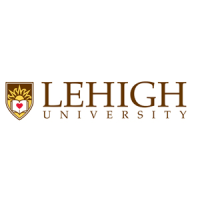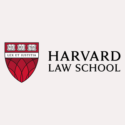 A new report from the U.S. Department of Education finds that in the fall of 2012 there were 2,864,723 African Americans enrolled in degree-granting institutions in the United States.
A new report from the U.S. Department of Education finds that in the fall of 2012 there were 2,864,723 African Americans enrolled in degree-granting institutions in the United States.
A year ago, an earlier edition of the same report listed 2,966,463 African Americans enrolled in degree-granting institutions. Thus, over the one-year period there was a decrease in African American enrollments of 101,740 students. This is a drop of 3.4 percent.
In 2012, African Americans made up 13.5 percent of the total enrollments at degree-granting institutions. This is down from 13.8 percent a year earlier.
In 2012 Blacks were 12.5 percent of all the students at state-operated colleges and universities, down from 12.7 percent a year earlier. In the fall of 2012, African Americans were 11.4 percent of all students at private, nonprofit institutions. This was just 0.1 percentage point lower than in 2011. But Blacks made up a whopping 24.9 percent, almost one quarter, of all students in private, for-profit higher education institutions in the fall of 2012. This was up from 24.2 percent in 2011.












Many for-profit schools are predatory.
See: Neoliberalism and the For-Profit, Predatory Educational Industry: You Can’t Regulate a Criminal Enterprise.
“The for-profit predatory colleges, in their mad dash to suck up as much as they can in Title IV funds, Pell grants, and other government subsidies, thus enriching their investors at the expense of students, prey on and then wolf down the most disadvantaged students they can find.
The for-profit predatory colleges sign up as many “borrowers” as they can – even pounding on homeless shelters to recruit bodies, looking for drug addicts they can enroll from recovery programs and all of this with debilitating consequences for borrowers who miss payments and borrowers’ families. They set up at welfare offices, hang out at laundromats in low-income neighborhoods, recruit at public housing units, and their “recruiters” patrol the streets of distressed neighborhoods in automobiles or on foot looking for vulnerable working class bodies they can register for government cash.”
Considering the recession, this is a rather small drop.
Consider also that some of the for-profit schools do good!
I’m waiting to hear some good stories about these schools. I work at an alternative school, and my former principal did not have good things to say about them. I’ve had one student graduate from one of these schools in the last year in their ‘medical assistant’ program. What is he doing now? He’s working at Amazon–something he could have gotten without that program. I had another of my students’ mother tell me that she was attending one of these schools and the teachers there weren’t helping students much. She said if they had problems, they encouraged them to drop out. That made more space for a new student (whose financial aid resources could be tapped). She also said that she saw a professor be fired that was working hard to help students be retained. Retaining students is not a good result at these schools because they take up a space that can’t be ‘sold’ to another patsy. Churning students and tapping their financial aid is the name of the game at these schools. There ought to be a law. . .